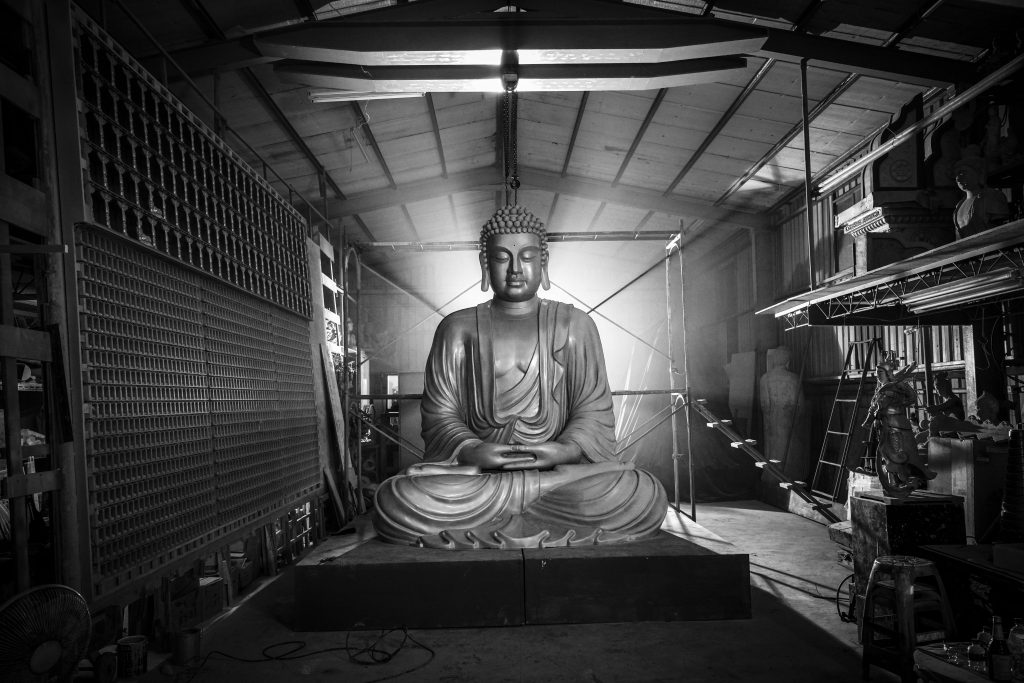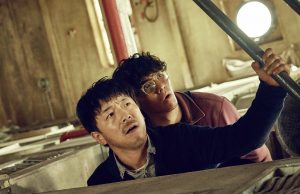Every day while CFI’s Hollywood readers take in the business of the Chinese film industry, the actual movies can sometimes seem exotic or remote. But in major US cities, mainstream Chinese films are increasingly available: thanks to Wanda’s purchase of AMC and distributors like China Lion, they get American theatrical releases practically simultaneous to their premieres at home. Though they receive virtually no publicity outside the non-Chinese community, these films are more than worth seeking out by anyone serious about engaging the Chinese industry, understanding the Chinese sensibility and familiarizing themselves with China’s talent pool. Periodically, CFI will review and point readers in the direction of noteworthy US releases of contemporary commercial and independent Chinese titles.
Marvelous Taiwanese study of down-and-outers’ survival strategies defines “bittersweet,” while managing to be effin’ hilarious along the way.

The so-called poetry of poverty has been one of cinema’s recurring powerful leitmotifs, since the silent days of Chaplin, Griffith and other pioneers, through De Sica and the vivid, truthful work of Sean Baker today. The genre gets a particularly rare and beautiful workout in writer-director Huang Hsin-yao’s affecting, very funny The Great Buddha+. The film addresses the daily lives of certain of Taiwan’s down-and-outs, some of whom count getting their next meal—which can be a trashed frozen bento with an expired date—as their most immediate and pressing of problems.
Security guard Pickle (Cres Chuang), toiling at a factory in the midst of creating an immense cast-iron Buddha for a major national celebration, lives with his frail, aging mother. He has but one friend: Belly Bottom (Bamboo Chen), an itinerant bum who collects junk and, eternally bullied by everyone in his scrungy world, takes dark delight in bullying Pickle, in the kind of relationship that one usually outgrows by high school.
In lieu of Pickle’s broken TV, the pair discovers home entertainment in the form of videos recorded on the dashboard cam of the sleazoid statue factory boss, Kevin (Leon Dai). There’s a lot of salaciousness here involving Kevin’s randy doings with his string of mistresses, even more exciting than the decrepit, sticky porno rags the two have previously bonded over. But when the guys witness the outcome of an argument between Kevin and an irate ex-girlfriend who threatens to expose his shadiness, they wish they’d stuck to the magazines.
Compositionally often quite gorgeous and filmed largely in luminous, at times otherworldly black-and-white, The Great Buddha+ is compelling due to its mordant wit, authentically observed performances and distinctive cynical/lyrical outlook. I’ve always found the (shall we say) “realer” side of Chinese underclass society immensely entertaining, for in their no-nonsense dealings and communications with one another they can be as uncompromisingly hard-core and plain-ass ghetto as the baddest of the bad, making a real mockery of any and all meek and mild Asian stereotypes. Huang’s screenplay is suffused with the kind of electrifyingly funny profanity that in itself is the comic fuel keeping the viewer in perpetual anticipation of a good, snorted guffaw. Odd couple Pickle and Belly Bottom have a deadpan but puckish chemistry that makes these losers, who would be unthinkable to deal with in real life, absolutely riveting onscreen. Huang, in showing their interaction with other scrappy, eccentric personalities in their sphere and their reactions to the seeming absurdities of the outside world, so much more privileged than theirs, satirically scores all kinds of meaty sociological points. Particularly funny is an angry encounter between the statue’s creators and a prissily officious emissary from an eminent Buddhist group who criticizes the work as not virtuous-looking enough, an argument that soon hilariousy devolves into attacks on personal lives and physical appearance.
Huang’s voiceover narration is a definite boon, giving his film delicious context, as well as the fable-like quality it richly earns. A wonderfully tasty, harmonica-laced music score by Lin Sheng-xiang also works wonders, bringing to mind the way Larry Adler’s virtuosity on that instrument so beautifully informed the 1954 Brit comedy Genevieve.
— This article originally appeared on Film Journal.
WHAT DOES THE GRADE MEAN?
Here are some recent & modern-era vintage Chinese and Hong Kong films for comparison
- A+
- PLATFORM (2000, dir Jia Zhangke)
- THE WORLD (2004, dir. Jia Zhangke)
- DRUNKEN MASTER 2 (1994, dir. Lau Kar Leung & Jackie Chan)
- KUNG FU HUSTLE (2004, dir. Stephen Chow)
- A
- LET THE BULLETS FLY (2010, dir Jiang Wen)
- THE MERMAID (2016, dir. Stephen Chow)
- A TOUCH OF SIN (2013, dir. Jia Zhangke)
- STILL LIFE (2006, dir. Jia Zhangke)
- MOUNTAINS MAY DEPART (2015, dir. Jia Zhangke)
- LITTLE BIG SOLDIER (2010, dir. Ding Sheng)
- EXTRAORDINARY MISSION (2017, dir. Alan Mak & Anthony Pun)
- MR SIX (2015, dir. Guan Hu)
- A WORLD WITHOUT THIEVES (2004, dir. Feng Xiaogang)
- SUZHOU RIVER (1999, dir. Lou Ye)
- HOUSE OF FLYING DAGGERS (2004, dir Zhang Yimou)
- RAISE THE RED LANTERN (1991, dir. Zhang Yimou)
- A-
- DUCKWEED (2017, dir. Han Han)
- I BELONGED TO YOU (2016, dir. Zhang Yibai)
- B+
- THE GREAT WALL (2016, dir. Zhang Yimou)
- OLD STONE (2016, dir. Johnny Ma)
- CRAZY STONE (2006, dir. Ning Hao)
- GO, LALA GO (2010, dir. Xu Jinglei)
- B
- KUNG FU YOGA (2017, dir. Stanley Tong)
- RAILROAD TIGERS (2016, dir. Ding Sheng)
- THE WASTED TIMES (2016, dir. Cheng Er)
- CHONGQING HOT POT (2016, dir. Yang Qing)
- MONSTER HUNT (2015, dir. Raman Hui)
- B-
- JOURNEY TO THE WEST: THE DEMONS STRIKE BACK (2017, dir. Tsui Hark)
- SOME LIKE IT HOT (2017, dir. Song Xiaofei & Dong Xu)
- BORN IN CHINA (2016, dir. Lu Chuan)
- D-
- TINY TIMES (2013, dir. Guo Jingming)






